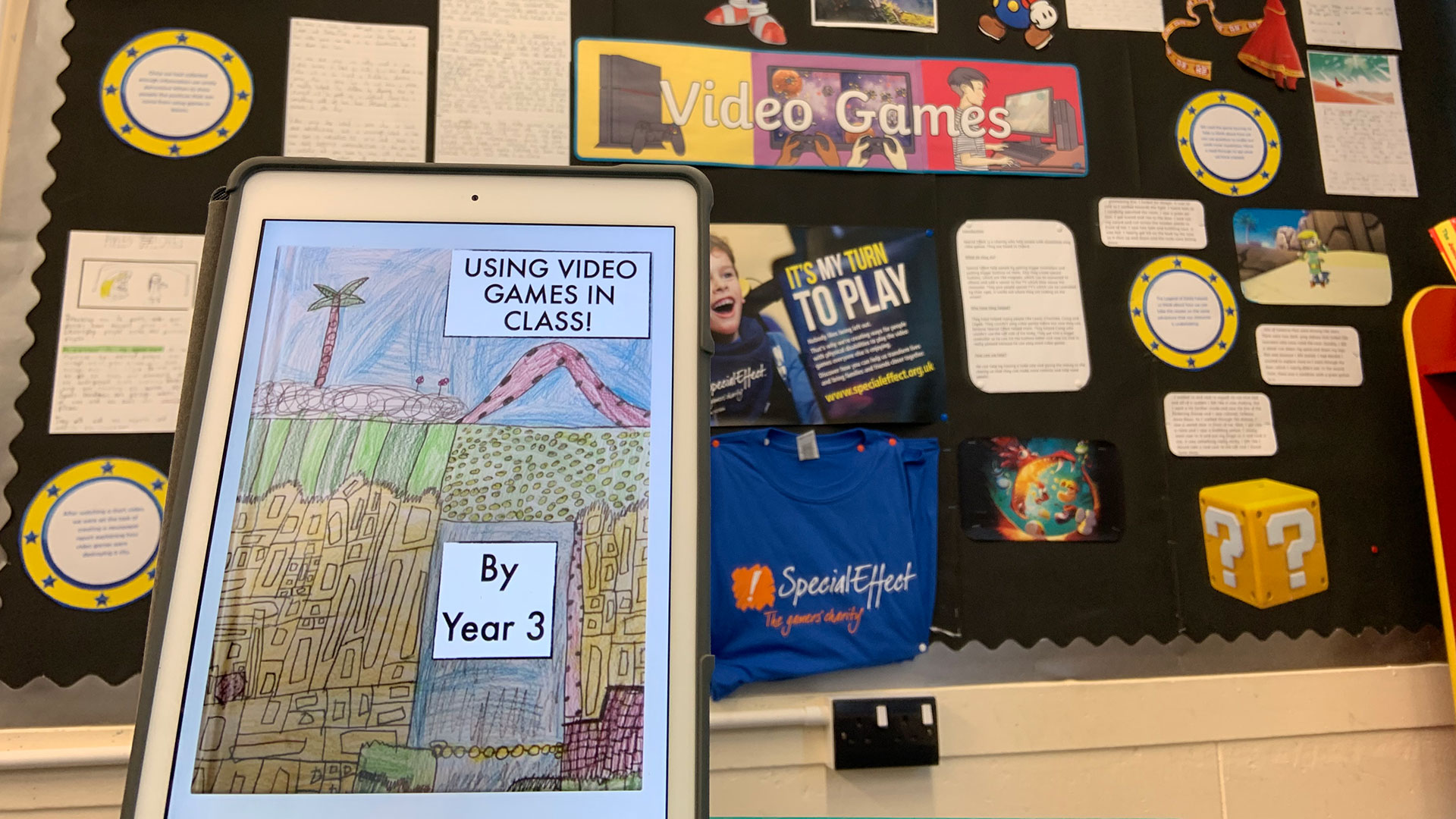Year 3 teacher Tom Bromwich had the brainwave to bring his passion for gaming into the classroom for the project – but the idea to make a book came from the kids.
“The idea came a few years ago when the new national curriculum came in we had persuasive writing element that we had to do,” he told The Big Issue. “When we’d done it before where we wrote letters to persuade parents to change the school or things like that.
“But I play quite a lot of video games outside work myself and said to my colleague at the time, “We should have a go at showing that video games can be useful” because there was a lot in the news at the time about them being violent, a distraction and a waste of time.”
Tom started off by asking kids to write to the head teacher to convince him it was a good idea before following that up with penning letters to the local MP.
The next step was to contact leading gaming figures across Britain and that included a Skype call from SpecialEffect.
“Once the call finished, one of the kids said that we should do something to help them,” said Tom. “We had a little discussion and one them said that we should write a book – normally we blog what we’re doing at the end of every week to show the parents but the kids said that we should keep this from them and put it in a book to show that the end of term.
Advertising helps fund Big Issue’s mission to end poverty
“We put things up on the wall but 99 per cent of things that we do are just seen by us, it’s been nice to explain to the kids all the people who have seen the book and reacted. There is more of a purpose to it.”
The charity’s founder and CEO Mick Donegan paid tribute to the school project. He said: “Tom is a great guy doing great work at a great school and deserves all the credit he gets.”
Bringing games into the classroom has been far from a distraction or gimmick, with kids playing a small portion of each game to fulfil part of the persuasive writing criteria. So Luigi’s Mansion was used for suspense, Journey for mystery and so on.
And Tom has found that the teaching capabilities from games outweigh other mediums.
“I think that we use things like songs and film clips in English and other subject as a stimulus to inspire,” he added. “Whereas when you’re playing a game you have all of them going on constantly and you are part of it, you are the character. The kids were saying to me, “We wouldn’t have got this experience if we were watching a film clip because it is happening to somebody else, but when it is happening to us you can empathise with it”. You are part of it.
Advertising helps fund Big Issue’s mission to end poverty
“I think that other schools should adopt this and really have a go at it because it is something that a lot of people think that can be a distraction or not fruitful in the end but there really is so much in there.”
Using Video Games in Class! is available on the iBooks store, priced £1.49, with all proceeds going to SpecialEffect
Images: Tom Bromwich









